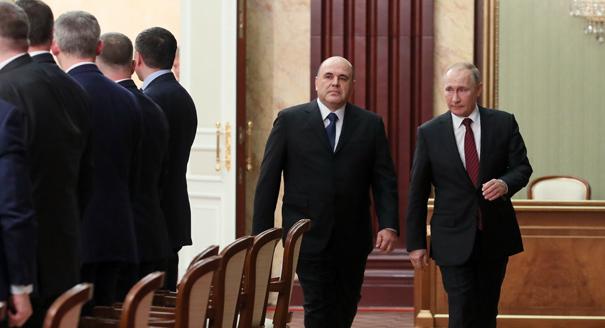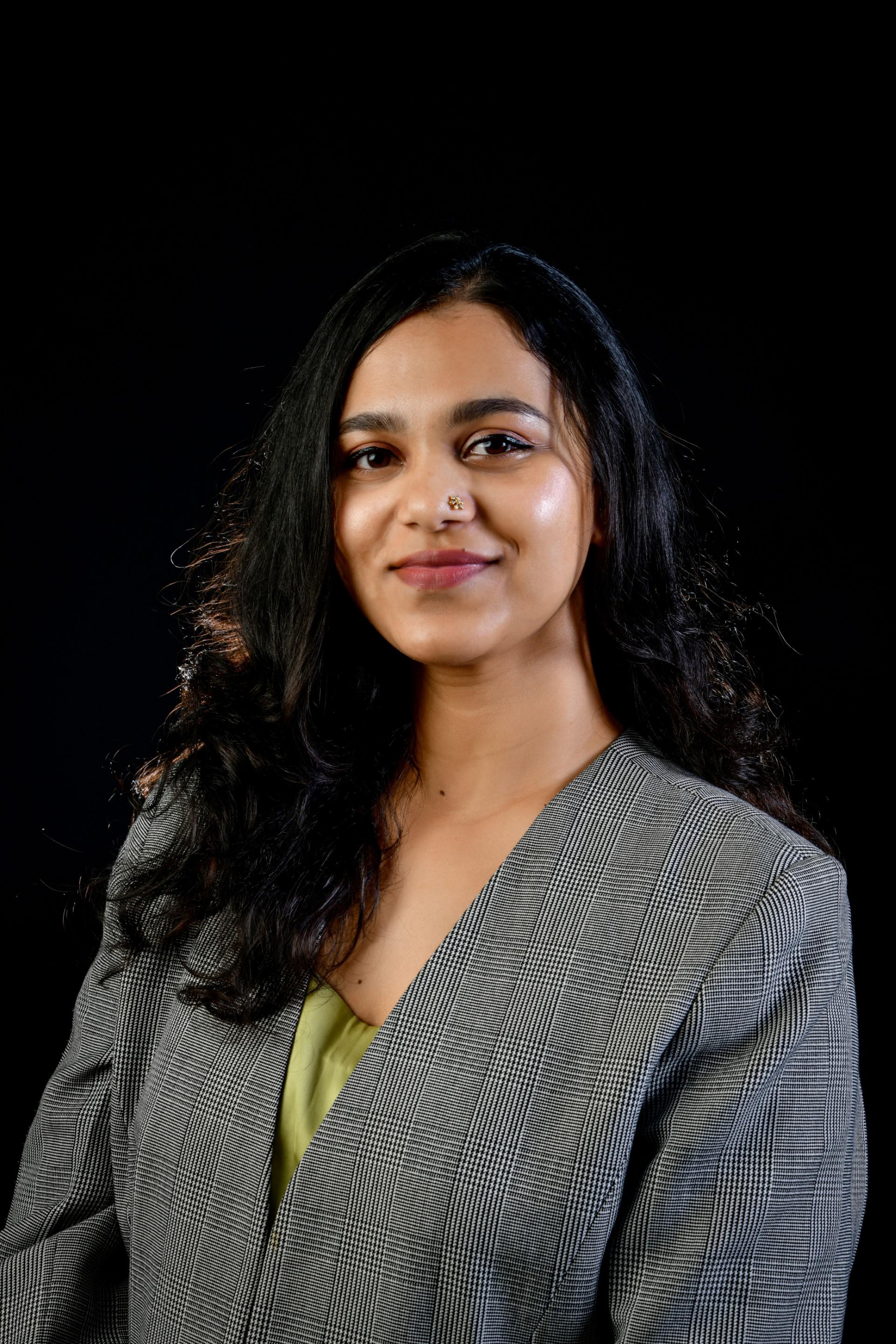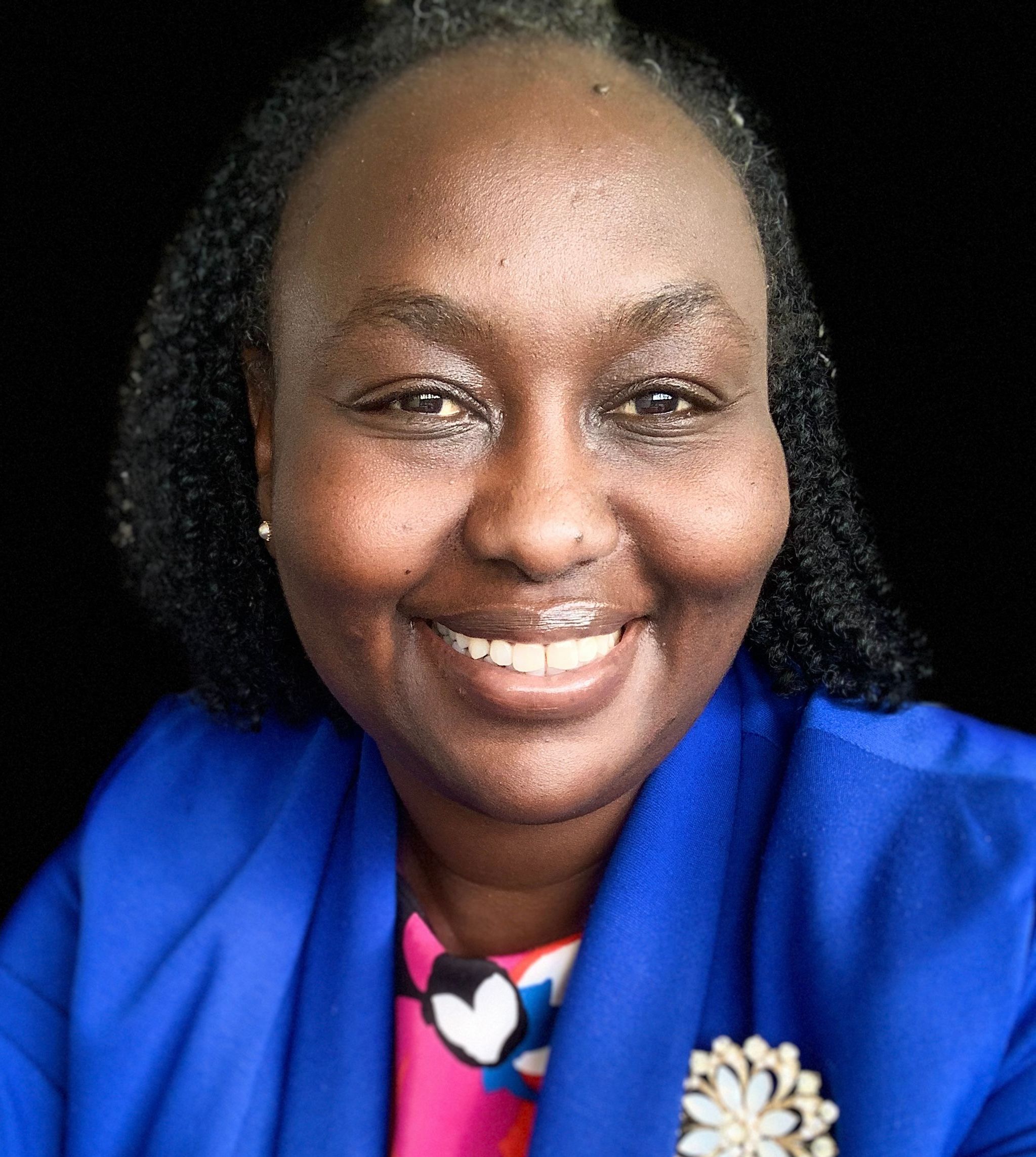It’s dangerous to dismiss Washington’s shambolic diplomacy out of hand.
Eric Ciaramella
{
"authors": [
"Tatiana Stanovaya"
],
"type": "commentary",
"centerAffiliationAll": "",
"centers": [
"Carnegie Endowment for International Peace",
"Carnegie Russia Eurasia Center"
],
"collections": [],
"englishNewsletterAll": "",
"nonEnglishNewsletterAll": "",
"primaryCenter": "Carnegie Endowment for International Peace",
"programAffiliation": "",
"programs": [],
"projects": [],
"regions": [],
"topics": []
}
Source: Getty
Russia’s new cabinet ministers are young, efficient, nonconfrontational, adaptable, and don’t poke their noses into politics. They live in the digital world that is so difficult for the country’s aging leadership to understand. With time, the victim of this technocratic dominance may be that very same leadership.
The Russian government has never been as nonpolitical as it is today. The new cabinet appointed by President Vladimir Putin this week is purely technocratic. It seems that eighteen months after he began his fourth presidential term, Putin has finally put in place the government he will need to help him navigate the handover of power to a successor.
It was Putin’s veiled announcement of the start of that handover last week that prompted the formation of a new government: the previous one resigned immediately after Putin revealed his plans for constitutional reform. In the new government led by Prime Minister Mikhail Mishustin, more than half of the ministers from the previous government have been replaced.
It’s not hard to see why a new cabinet was required: the lack of progress being made on the national projects (a large-scale road map to develop Russia’s infrastructure), billions of unspent budget funds at the end of last year, barely perceptible economic growth, and falling household incomes. Together with the unpopular move to raise the retirement age, this has dragged down the governments’ approval ratings, which was reflected in the outcome of elections, making it a problem for Putin.
The new government is also the first under Putin to contain none of his old friends, following the departure of two of the president’s longtime associates dating back to his time in the St. Petersburg mayor’s office: deputy prime ministers Dmitry Kozak and Vitaly Mutko. The latter, a former sports minister, had been at the center of the disastrous doping scandal surrounding Russian sport. Their removal is a continuation of the trend in recent years of Putin’s protégés being gradually moved out of the official power system to make way for young technocrats.
It appears that the main political priority of the new government will be social policy. The government will have to find and spend the enormous sums required to fund the social program promised by Putin, who wants to ease the power transition and knows that that process will go more smoothly if the electorate is content.
It’s no surprise that the post of first deputy prime minister has been given to Andrei Belousov, a former presidential aide on economic affairs. He was the main initiator and supervisor of the national projects during Putin’s presidential campaign, and now he will be responsible for their implementation.
Belousov is generally considered a moderate advocate of dirigisme, a supporter of a more active role for the state in the economy. As well as working on the new wording of the national projects, which dates back to 2005 and was not authored by Belousov, he is infamous for writing a controversial letter to Putin proposing a windfall tax on major metals and petrochemical companies to raise an additional 500 billion rubles for the national projects.
Out of nine deputy prime ministers in the new government, five are experienced political figures. Belousov is now effectively second in charge, and will be responsible overall for the financial and economic bloc.
Also worthy of particular attention is the new deputy prime minister for culture, tourism, and sport: Gazprom Media head Dmitry Chernyshenko. He was previously head of the Sochi 2014 Olympic bid committee, where he first came to the president’s attention. He later headed the Volga Group holding that belongs to Gennady Timchenko, a close associate of Putin. But Chernyshenko is also a friend of the new prime minister, Mishustin, who happens to be a member of the board of the CSKA Moscow hockey club, while Chernyshenko was president of the Kontinental Hockey League. The two men are also neighbors when at their dachas outside Moscow.
Mishustin’s other deputies are, for now, far from public politics. The most experienced bloc in the new government is the financial-economic one, now joined by a new digital development and communications minister, Maksut Shadayev. Another young technocrat, he has worked with heavyweights ranging from former communications minister Leonid Reiman to First Deputy Chief of Staff Sergei Kiriyenko, for whom he acted as a consultant on issues regarding social networks. Shadayev also has experience in digitizing state services, one of the new cabinet’s priorities.
The new government is also significantly less ideology-driven than before. Gone is the conservative Minister of Enlightenment Olga Vasilyeva, along with the ultra-patriotic Culture Minister Vladimir Medinsky, who managed to fall out with literally everyone during his controversial tenure. He has been replaced with Olga Lyubimova, the former head of the Culture Ministry’s film department. Lyubimova may have forged her career working in media focusing on the Orthodox religion, but she is still perceived as a more sober professional.
Another hallmark of the new government is its relative youth. Five of the nine deputy prime ministers—i.e., all of Mishustin’s new deputies—are under fifty-five. Six of the eight new ministers are under forty-five. The oldest bloc within the government is still, inevitably, that of the security services. Putin barely touched that bloc, except to replace Alexander Konovalov, a proxy for former prime minister Dmitry Medvedev, with another Medvedev proxy, Konstantin Chuychenko, as justice minister.
More telling still is the versatility of the new cabinet. Many ministers have worked under the patronage of a highly diverse range of centers of influence. Yet they can’t exactly be described as protégés or stooges. Instead, they embody functions, and can work productively with all the different camps.
They’re nonconfrontational, efficient, young, adaptable, and don’t poke their noses into politics. Many of them are young enough to be Putin’s children. They are the next generation and they live in a different world: the digital world that is so difficult to understand for the country’s aging leadership. It’s possible that with time, the victim of this process of becoming a technocracy will be the highest powers themselves, having proved too conservative for the new technocrats that they are currently promoting to the top ranks.
Carnegie does not take institutional positions on public policy issues; the views represented herein are those of the author(s) and do not necessarily reflect the views of Carnegie, its staff, or its trustees.
It’s dangerous to dismiss Washington’s shambolic diplomacy out of hand.

Eric Ciaramella
The India AI Impact Summit offers a timely opportunity to experiment with and formalize new models of cooperation.


Lakshmee Sharma, Jane Munga
EU member states clash over how to boost the union’s competitiveness: Some want to favor European industries in public procurement, while others worry this could deter foreign investment. So, can the EU simultaneously attract global capital and reduce dependencies?

Rym Momtaz, ed.
Europe’s policy of subservience to the Trump administration has failed. For Washington to take the EU seriously, its leaders now need to combine engagement with robust pushback.

Stefan Lehne
Leaning into a multispeed Europe that includes the UK is the way Europeans don’t get relegated to suffering what they must, while the mighty United States and China do what they want.

Rym Momtaz